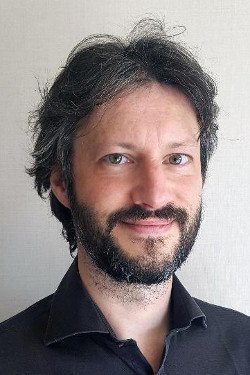Igor Larrosa
2019 United Kingdom Award Finalist — Faculty

Current Position:
Professor of Organic Chemistry
Institution:
The University of Manchester
Discipline:
Organic Chemistry

Current Position:
Professor of Organic Chemistry
Institution:
The University of Manchester
Discipline:
Organic Chemistry
Recognized for: Applying transition metal catalysis for the development of innovative approaches towards making the very stable carbon-hydrogen bond more reactive.
Areas of Research Interest and Expertise: Organic Chemistry, Synthetic Methodology, Carbon-Hydrogen Bond Activation, Transition Metal Catalysis
Biography:
BSc, University of Barcelona, Spain
MSc, PhD, University of Barcelona, Spain (Advisors: Prof. Felix Urpi & Prof. Pere Romea)
Postdoctoral Researcher, Imperial College London (Advisor: Prof. Anthony Barrett)
Prof. Igor Larrosa is a world-leader in a sub-field of organic chemistry called carbon-hydrogen (C–H) bond activation. Organic chemistry is the chemistry of substances primarily composed of carbon. When certain elements like chlorine, bromine, and iodine bond to carbon, they are inherently very reactive and can be manipulated easily to form new compounds. However, hydrogen atoms bonded directly to carbon are notoriously unreactive because they form relatively strong bonds. Prof. Larrosa has addressed this lack of reactivity by performing careful mechanistic studies, and has discovered catalysts and reaction conditions that can greatly enhance the reactivity of aromatic C–H bonds. These catalytic systems have enabled reactions that typically require very harsh conditions, such as elevated temperature and pressure, to take place at room temperature. Prof. Larrosa's research also tackles the longstanding issue of regioselectivity in C–H activation. Regioselectivity is the ability to distinguish between two or more distinct C–H bonds within a molecule and selectively target one over the others. This ability to fine-tune the reactivity of these molecules has already changed the way that chemists approach the synthesis of complex drug targets. Specifically, Larrosa's methods allow chemists to take drugs already in use and easily change their molecular architecture to produce new analogs of those drugs that might have novel or improved properties. These methods are not limited to pharmaceuticals, however, and are industrially applicable in the synthesis of practically any organic molecule containing linked aromatic motifs, thus potentially saving millions of dollars each year in production costs.
"Research in my group is dedicated to understanding the key mechanisms that make C–H bond activation possible. Our discoveries have allowed us to develop new catalysts that can perform C–H bond activation on 'real world' molecules, such as pharmaceuticals, agrochemicals, and other biological molecules. Our dream is to be able to transform any desired C–H bond in any molecule into any other type of bond, thus greatly simplifying the synthesis of any target molecule of interest. This is truly a team effort and I am indebted to the many outstanding students and postdoctoral researchers that have contributed to this work over the years. It is a great honor to be selected as a Finalist for this prestigious award on the basis of our advances in this exciting field."
Key Publications:
M. Simonetti, D. M. Cannas, X. Just-Baringo, I. J. Vitorica-Yrezabal, I. Larrosa. Cyclometallated ruthenium catalyst enables late-stage directed arylation of pharmaceuticals. Nat. Chem. 2018.
D. Whitaker, J. Burés, I. Larrosa. Ag(I)-catalyzed C–H activation: The role of the Ag(I) salt in Pd/Ag-mediated C–H arylation of electron-deficient arenes. J. Am. Chem. Soc. 2016.
C. Colletto, S. Islam, F. Juliá-Hernández, I. Larrosa. Room-temperature direct β-arylation of thiophenes and benzo[b ]thiophenes and kinetic evidence for a Heck-type pathway. J. Am. Chem. Soc. 2016.
J. Luo, S. Preciado, I. Larrosa. Overriding ortho-para selectivity via a traceless directing group relay strategy: The meta-selective arylation of phenols. J. Am. Chem. Soc. 2014.
Other Honors:
| 2012 | Science & Engineering Research Performance Award |
| 2011 | European Research Council Starting Grant (ERC) |
| 2009 | Thieme Chemistry Journals Award |
In the Media:
Synform - Cyclometallated Ruthenium Catalyst Enables Late-Stage Directed Arylation of Pharmaceuticals
In Abstract - New class of ruthenium catalysts allows late-stage arylation of drugs
Chemistry World - Show the way but leave no trace